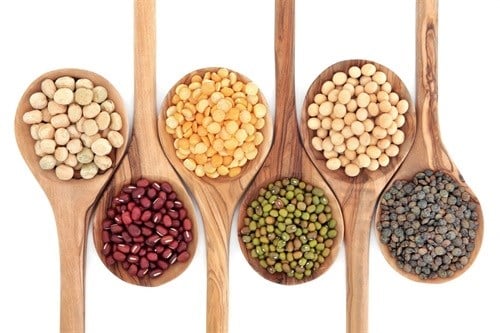“There’s a good reason to put dry beans, peas, lentils and soya into the spotlight. Unfortunately, they are largely overlooked as they are often seen as a ‘poor man’s food’ and they can take a long time to cook. We should be eating them, along with a variety of foods, at least four times a week; and yet, many of us hardly include them in our diets. There’s just not enough awareness of how they contribute to healthy lifestyles, or how to use them well to make delicious meals,” says Ms Lynn Moeng-Mahlangu, Cluster Manager of Health Promotion, Nutrition and Oral Health at the National Department of Health. “However, this National Nutrition Week, we hope to share tips and recipes to inspire South Africans to eat more beans, peas, lentils and soya. For information on these tips, access the National Nutrition Week website”.
National Nutrition Week is a joint initiative by the Department of Health, the Association for Dietetics in South Africa (ADSA), the Nutrition Society of South Africa (NSSA), the Consumer Goods Council of South Africa (CGCSA), the Heart and Stroke Foundation South Africa (HSFSA) and the Consumer Education Project of Milk SA (CEP). “We are delighted that this year’s theme highlights these affordable, versatile and tasty foods that make such a vital contribution to our health when they are a regular part of the family’s healthy eating regime,” says ADSA President, Maryke Gallagher.
So much nutrition advice is centred on what we need to eat less of, but when it comes to pulses – your dry beans, peas and lentils – the message is about eating more!
Carol Browne from the NSSA highlights some benefits of pulses. “Beans, peas and lentils also provide exceptional nutritional value for money, having a high micronutrient to price ratio. What’s more, they improve soil fertility, are water efficient and have a smaller carbon footprint, promoting environmental sustainability.”
The top nutritional benefits of eating dry beans, peas, lentils and soya are that:
- They are low in fat, high in fibre and have a low glycaemic index
- They are naturally cholesterol-free
- They are naturally gluten-free
- They are a good source of plant protein, providing twice as much protein as wheat
- They are good sources of vitamins such as folate and minerals such as potassium and calcium
According to Professor Pamela Naidoo, CEO of the HSFSA, “Including dry beans, peas, lentils and soya regularly in your diet, along with other health promoting behaviours, contributes to better health, helping to improve blood pressure and the maintenance of a healthy weight, reducing the risk for conditions such as diabetes, heart disease and strokes.”
When it comes to cooking, pulses are wonderfully versatile and can be incorporated into the diet in many ways. “Pulses are excellent when used as the main ingredient in a vegetarian meal,” Linda Drummond from the CGCSA points out, “Or they can be used as an affordable way to extend meat in something like a meat stew or a bolognaise sauce. Cook up a large batch, portion and freeze to use to make a quick meal like soup or a bean salad.” As part of National Nutrition Week activities, a host of recipes celebrating beans, peas and lentils in tasty dishes are available on the National Nutrition Week website.
“Some people experience bloating and gas as a result of eating beans, but we would like to highlight steps that can be taken to prevent this from being a reason why many don’t include these nutritious foods in their eating plans”, says Maretha Vermaak from the CEP of Milk SA. Vermaak advises people to start with small amounts to build up one’s tolerance over time and to soak dry beans before cooking.
On Wednesday, 12 October, ADSA (@ADSA_RD) will be hosting a Twitter Talk from 1-2pm where dietitians and National Nutrition Week partners will be answering questions such as: Why are beans, peas and lentils good for health? How do we avoid getting bloated and windy after eating beans? What is the best way to prepare dry beans for cooking? How do I introduce more dry beans, lentils and peas into my children’s diet? What are some ways we can use beans, peas and lentils in meals and snacks? Join the conversation live on Twitter, follow the @ADSA_RD handle or track the hashtag #LovePulses to get great ideas and tips that will help you and your family to love dry beans, peas and lentils. The Department of Health in the various provinces will also celebrate National Nutrition Week during the month of October.
For more information on National Nutrition Week 2016, please visit the website: http://www.nutritionweek.co.za/
National Nutrition Week Partners:
































